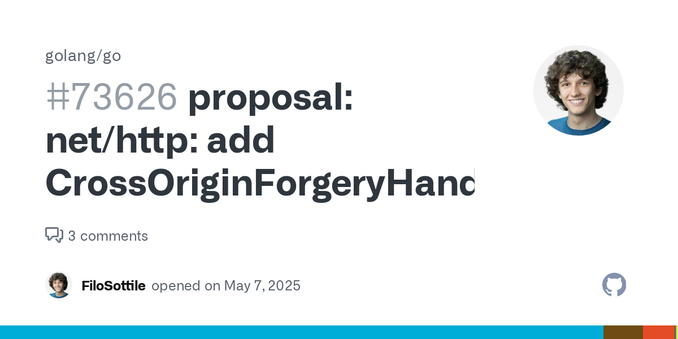In which I survey CSRF countermeasures and existing Go libraries and propose we add CrossOriginForgeryHandler to net/http to solve this once and for all.
Turns out there is no need for tokens or keys in 2025! Browsers just send a This-Is-CSRF header now. (Sort of.)


